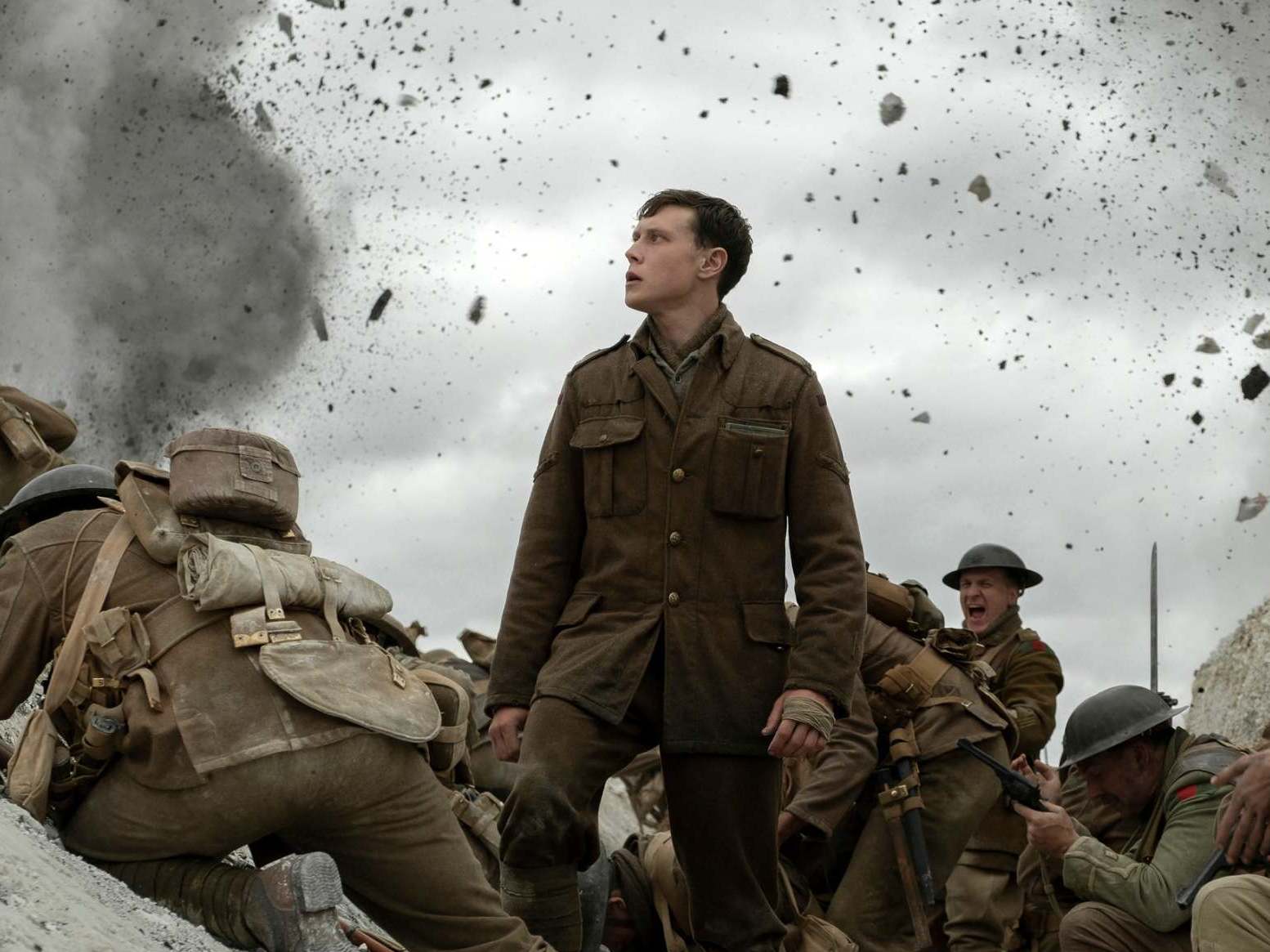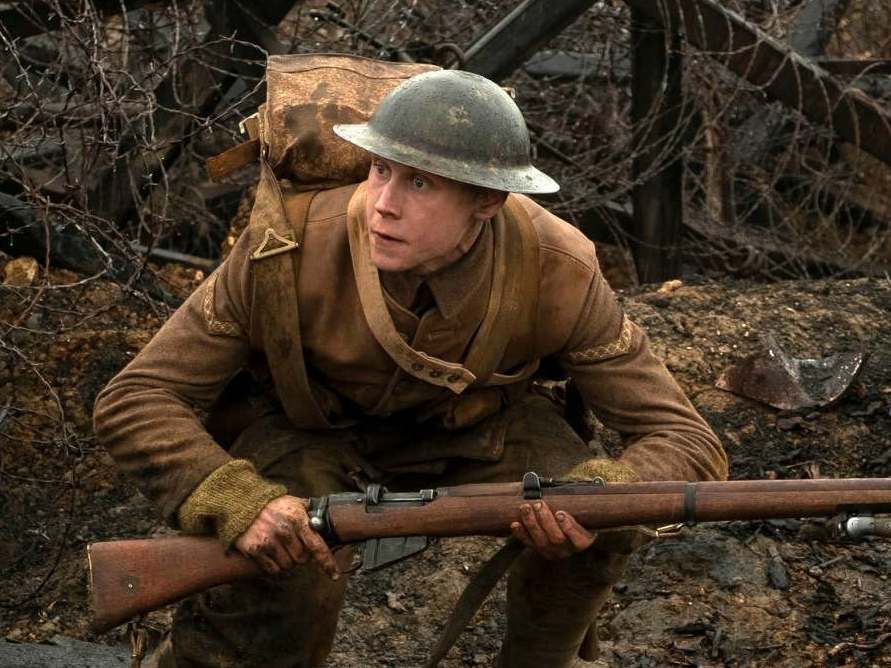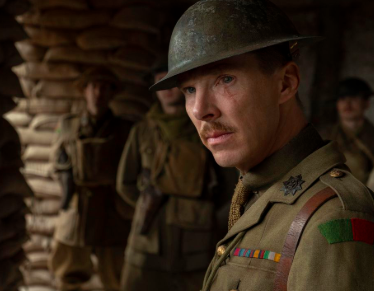1917's awards success proves people are more interested in war than women
Clichés abound in war films, writes Annie Lord, and 1917 gives us more of the same, hoping that the illusion of one long continuous take will make it seem new


Your support helps us to tell the story
From reproductive rights to climate change to Big Tech, The Independent is on the ground when the story is developing. Whether it's investigating the financials of Elon Musk's pro-Trump PAC or producing our latest documentary, 'The A Word', which shines a light on the American women fighting for reproductive rights, we know how important it is to parse out the facts from the messaging.
At such a critical moment in US history, we need reporters on the ground. Your donation allows us to keep sending journalists to speak to both sides of the story.
The Independent is trusted by Americans across the entire political spectrum. And unlike many other quality news outlets, we choose not to lock Americans out of our reporting and analysis with paywalls. We believe quality journalism should be available to everyone, paid for by those who can afford it.
Your support makes all the difference.There’ve been a lot of war films. Boys who want to be heroes. Brutalised soldiers with lipstick-sealed love letters from home. A private who removes his helmet only for a bullet to sink into his brain. High-ranking, moustached officers hiding in the shadows as shells maim their men. Horses mangled in barbed wire, bad food, rotting feet, cigarettes.
1917 gives us more of the same, hoping that the illusion of one long continuous take will make it seem new. Set during the First World War, the film follows two corporals, Blake (Dean-Charles Chapman) and Schofield (George MacKay), as they battle their way through no man’s land in an attempt to stop allied regiments from heading into a German trap. Gimmick aside, the whole thing feels as tired as the wrinkles etched into the soldier’s faces. Shrapnel fatigue is setting in.
Even so, the Sam Mendes-directed feature has been clearing up this awards season. It won seven Bafta awards, including Best Film and Best Director. At the Golden Globes, it won Best Picture and Best Director. And with 10 Oscar nominations, it is the favourite to win Best Picture ahead of this weekend’s ceremony.

Granted, cinematographer Roger Deakins does impressive work, letting viewers enter the headspace of Blake and Schofield. As the camera glides past thousands of beige uniforms slouched in the mud next to dead rats, there is a sense of the scale of war’s sacrifice. Watching Blake and Schofield run through a crumbling underground tunnel, we can almost feel the dust clouding up our own eyes. And when they climb through the barbed wire and brittle bones of no man’s land, one’s own body starts to flinch at the threat of oncoming bullets.
But all too often, it feels as though the camera is more alive than the characters in front of its lens. So attached is 1917 to its technique, the machinations start to distract from everything else. As a tunnel crumbles around Blake and Schofield, you wonder how the hell a boulder hasn’t crunched through the thousands of pounds worth of equipment following them on their way out. When a stab wound saps the pink from a soldier’s rosy cheeks, all you can think about is how they managed to make him look dead without cutting the shot so a makeup artist could paint his skin.
Watching 1917 is like sitting through a Call of Duty cutscene that you can’t skip. When Blake and Schofield stop and speak to a number of famous actors reeled out along the frontline, the interactions feel like those you have when levelling up on the game. Andrew Scott’s role as an embittered trench commander is interesting. As is the way stasis has made Benedict Cumberbatch’s character seek blood regardless of the cost. But we don’t get to explore how these men reached this darkness, or where it will take them, because we must follow the camera as it steamrolls down the frontline.
There’s no character development, bar that of George MacKay – whose gorgeously skeletal face goes from glowy to grey through the course of the film – and he is practically the only element of the film not nominated for an Oscar. Birdman (2014), another one-shot feature, got around this problem by setting the film in the confined space of a theatre. Corridors and backrooms meant we could revisit characters, as fame and loneliness changed the way they encountered the world. In 1917, you meet characters, whisper to the person next to you: “That was that guy in [insert blockbuster here]”, and then move on.

There’s nothing wrong with war films. It’s important to look at the trauma humans have inflicted, and continue to inflict, upon one another. But we are bombarded with the same story: one of buff Brits and nasty Germans ready to sink a knife between your ribs when your back is turned.
The solution isn’t to do a “the next James Bond should be a woman” and shoehorn female characters into a man’s story. We don’t need to pretend women were lobbing grenades over the top, but they existed even in wartime, and were doing work that films rarely bother depicting. The only time we see a woman in 1917, she’s mopping the sweating brow of Blake, or she’s trapped in the black and white photo crumpled up in his hands.

Watch Apple TV+ free for 7 days
New subscribers only. £8.99/mo. after free trial. Plan auto-renews until cancelled

Watch Apple TV+ free for 7 days
New subscribers only. £8.99/mo. after free trial. Plan auto-renews until cancelled
At one point, a Sikh soldier appears, which goes some way to acknowledging the three million men from the British Empire who fought during the First World War. But could we not have had a film following their journey through the trenches?
1917’s success has come at the cost of so many other great films. Greta Gerwig wasn’t nominated as Best Director for Little Women. Lulu Wang’s The Farewell received no nominations. J-Lo fought her own kind of battle in Hustlers, but the awards don’t seem to care about that.
Cinematography aside, 1917 isn’t an amazing film. But it will win big at the Oscars, because films about women don’t, and films about guns do.
Join our commenting forum
Join thought-provoking conversations, follow other Independent readers and see their replies
Comments